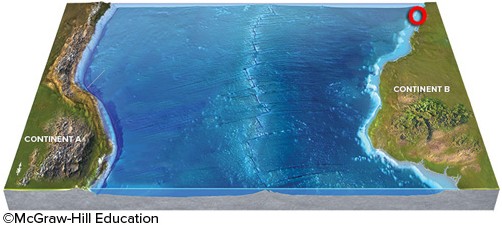In some instances electromagnetic radiation behaves like a wave. In other instances electromagnetic radiation behaves more like a particle. Which behavior more accurately describes the true nature of electromagnetic radiation?
A) Particle behavior more accurately describes the true nature of electromagnetic radiation.
B) Electromagnetic radiation behaves both as a wave or as a particle depending on the circumstance.
C) Wave behavior more accurately describes the true nature of electromagnetic radiation.
D) There is no circumstance in which electromagnetic radiation can be described as either portraying particle or wave behavior.
B
You might also like to view...
An agreed-upon common language to facilitate communication on specific topics such as business is called a(n)
A) language group. B) official language. C) dialect. D) lingua franca. E) language family.
The concept of isostacy explains why ____.?
a. ?magnetic differences exist in stripes along the seafloor b. ?magma plumes are created c. ?continental crust stands higher than oceanic crust d. ?convection moves magma under the lithosphere e. ?lithospheric plates move in response to convection
The Coriolis force is the force that causes the wind to blow
Indicate whether the statement is true or false
Use your knowledge of plate boundaries to answer whether an earthquake is likely or unlikely to occur at the location of the red circle.
A. Likely B. Unlikely